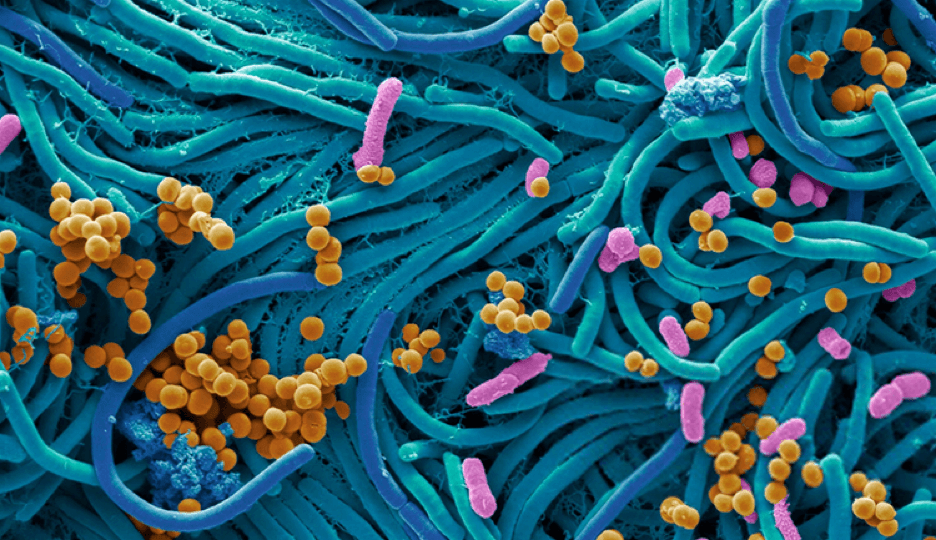All about bacteria & how it spreads
From inside your digestive system to your business spaces, bacteria can be found everywhere.1, 2 Let’s take a look at what bacteria are, how they are spread, and the ways you can help keep bad bacteria at bay with the help of Dettol® Pro Solutions.
So, what are bacteria?
Bacteria are a type of microorganism. They are tiny living cells which are not visible to the naked eye and thrive in a variety of different environments. Bacteria can be found almost anywhere from inside the human body, to surfaces in the home and substances such as water or food.1-4
What is the difference between bacteria and viruses?
A virus is another type of microorganism, however, unlike bacteria, viruses cannot survive unless they have a living host such as the human body or an animal. Another difference between bacteria and viruses is that most viruses do cause illness. Viral infections include the common cold and flu.4
Are bacteria bad for you?
There are particular types of bacteria which can be harmful to you and your family. If you consume or come into contact with these harmful bacteria, it can make you unwell. Harmful bacteria are usually called pathogenic bacteria.1, 4
Although some types of bacteria can make you very unwell, there are lots of other types of bacteria, such as those found in yogurts and inside your digestive system, which are not harmful. In fact, many bacteria are actually good for you and have lots of benefits such as aiding digestion and keeping you healthy inside and out.2, 5

How do bad bacteria spread?
Bacteria can be spread in a number of ways including:
- Person-to-person contact e.g. shaking hands
- Through contact with faeces (human or animal)
- If someone is unwell they could spread bacteria through the tiny of droplets of fluid which are released when they cough or sneeze
- Consuming food which is infected with harmful bacteria
- Certain bacteria can survive on household items and surfaces for a number of hours – touching these surfaces will help bacteria to spread
Bacteria in your business spaces
Bacteria are invisible to the naked eye, so it’s easy to forget that there are plenty of places in your business where bacteria might be lurking.1, 4
Of course, not all of these bacteria will be harmful, but some common bacteria could make your customers and staff unwell.1
Given the right nutrients and environment, certain bacteria can divide and multiply every 20 minutes.6 With the right cleaning and disinfecting products, regular cleaning can lower the risk of spreading bacteria from surfaces.7
What does antibacterial mean?
Simply put, antibacterial means anything that reduces bacteria.8
How can your business benefit from antibacterial products?
When you’re short on time, a quick spruce and surface wipe down might seem like a job well done. But those areas in your business which are high-touch surfaces such as doorknobs, light switches, elevator buttons, phones, keyboards, toilets and sinks, have a higher risk of harbouring germs and require more frequent and thorough attention.9 That’s where antibacterial cleaning products come in.
Cleaning products with antibacterial properties kill bacteria, which helps to protect your community.8 When used as directed, Dettol® antibacterial cleaning products can kill up to 99.9% of germs* found on surfaces.10
*E. coli, S. aureus



